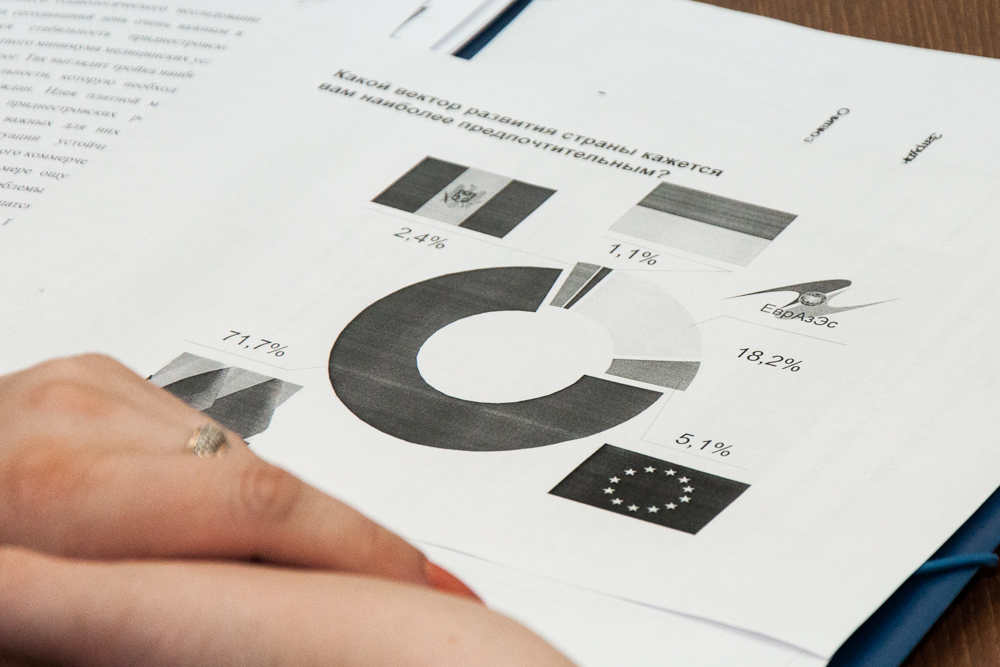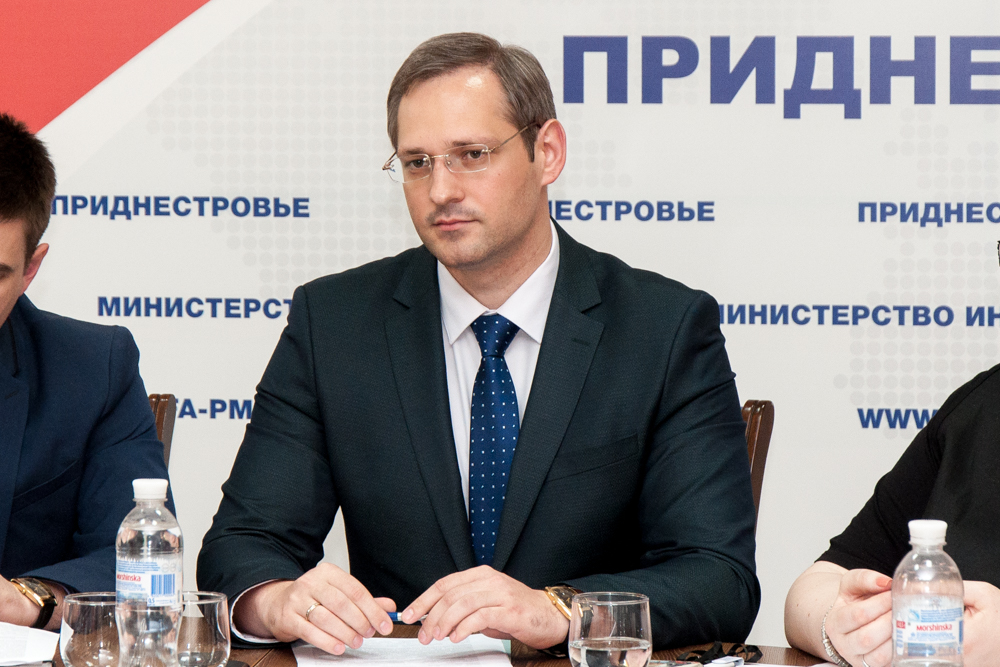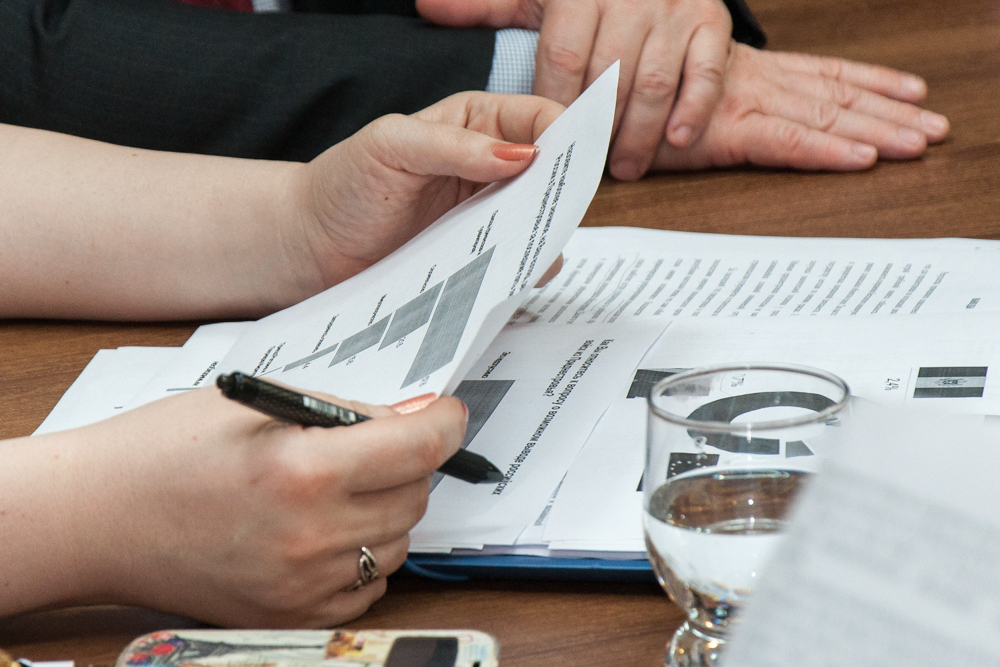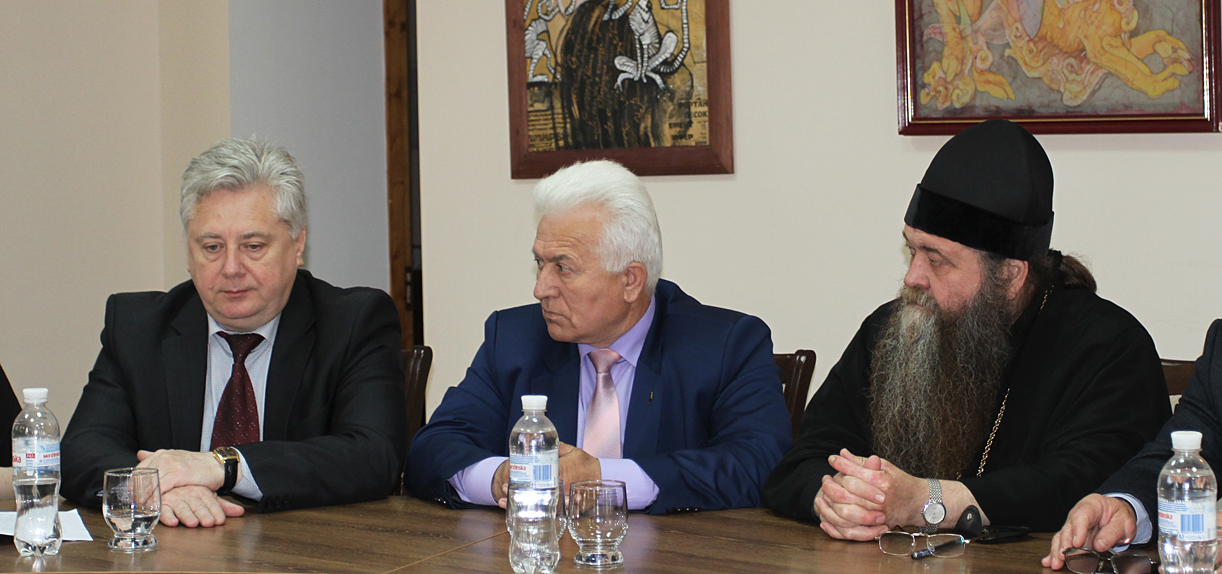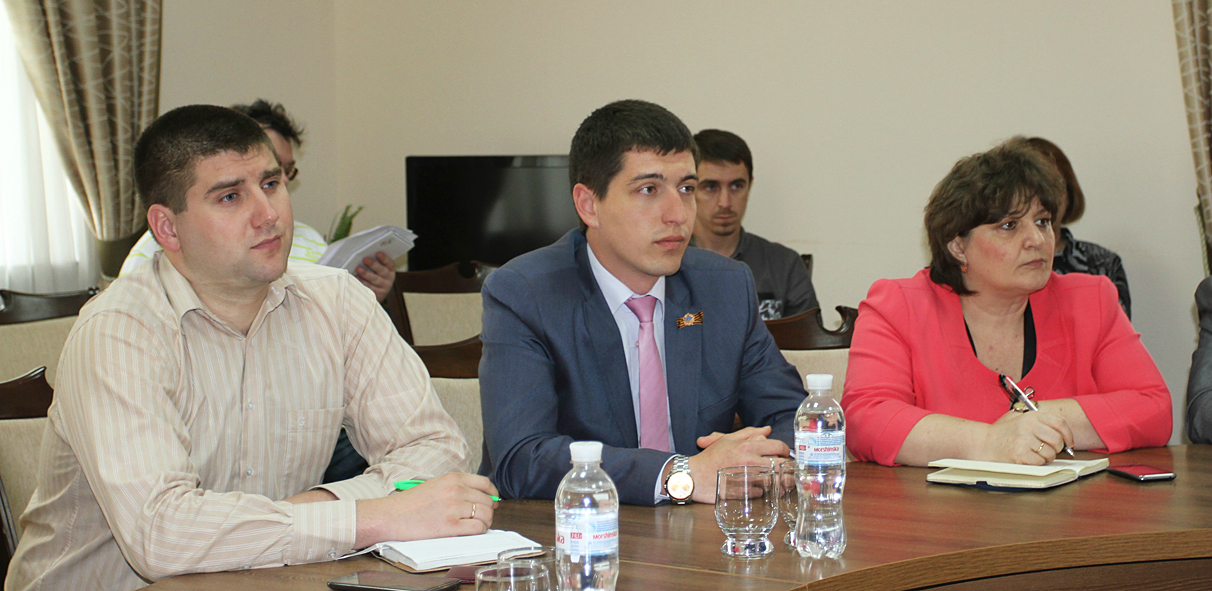A regular meeting of the Public Expert Council under the PMR’s MFA was held today at the Foreign Ministry. The Council was attended by Acting Foreign Minister of the PMR Vitaly Ignatiev.
During the event, Director of the Independent Centre for Analytical Research “Novy Vek” /New Centure/ Yelena Bobkova presented some results of a large-scale sociological research conducted in the republic by specialists from the T.G. Shevchenko Pridnestrovian State University. In particular, the members of the Public Expert Council and media representatives were offered information about the attitude expressed by the residents of the republic to a number of relevant aspects of Pridnestrovie’s foreign policy.
As noted by Yelena Bobkova, according to the survey results, the overwhelming majority of Pridnestrovian residents support the pro-Russian development vector of the republic. In particular, 71.7% of respondents are in favour of the PMR’s independence and subsequent free joining the Russian Federation, another 18.2% consider it necessary for the PMR to enter the Eurasian Economic Union as an independent state. Thus, according to the sociologist, the Eurasian vector has the support of 89.9% of the population.
In this context, Yelena Bobkova emphasized that the Eurasian vector of development is perceived quite specifically in Pridnestrovie in comparison with any other country in Eurasia. “Pridnestrovians are largely oriented towards the fact that the Russian Federation is the leader of this movement, so the Eurasian choice is the organic continuation of the orientation trend towards Russia,” she said.
Continuing the theme Deputy Foreign Minister of the PMR Igor Shornikov focused attention on the fact that in conducting a similar study in 2013 60% of Pridnestrovians supported the Eurasian integration, 33% of them meant by it direct joining the Russian Federation. According to him, today the numbers look different. “Now the number of people standing for the Eurasian vector of development in the whole is already 89%: 71% of those who is in favour of the integration into Russia, and 18% of those who see independent Pridnestrovie as a part of the Eurasian Union. Thus, the number of supporters for the integration of the PMR into the Russian Federation has doubled,” said the diplomat. According to him, this trend is due to the major geopolitical events that have occurred after 2013, primarily, to the reunification of Crimea with Russia. “Many Pridnestrovians saw in that precedent the most preferred example for the PMR,” said Igor Shornikov.
In connection with the voiced results head of the PMR’s MFA Vitaly Ignatiev emphasized the importance of the fact that Pridnestrovian people clearly realize that the main vector of development of the state is still the same and fully in line with the aspirations of the people. “This is an important element, especially in view of some experts' statements, which cast doubt on the adequacy of the foreign policy of Pridnestrovie. We analyze these figures carefully and we believe that they are in line with our understanding of the current reality,” the diplomat stressed.
The meeting also noted that the majority of respondents - 82.7% - consider the withdrawal of Russian troops from Pridnestrovie as unacceptable, which, according to participants of the meeting, fully corresponds to the traditional for the Pridnestrovian society perception of a Russian soldier as the main guarantor of peace and security for Pridnestrovie. “It is difficult for Pridnestrovians to overestimate the role of the Russian army, Russian peacekeepers, and this assessment remains consistently high for many years,” said Yelena Bobkova.
At the same time, as reported in the course of today's meeting of experts, the survey revealed that the majority of respondents - 58.5% - find the foreign policy situation disturbing and causing concern. “It is necessary to understand that this is wider fear, on the one hand, including fear of military action, especially as the external situation is very disturbing. A substantial proportion of Pridnestrovians largely connects the worsening of economic situation in our country also with our environment, with the influence of Moldova and Ukraine,” noted Yelena Bobkova. So, according to her, 41% of the participating in the survey believe that the blockade actions of Ukraine had the most influence on deepening the crisis. Almost the same number of respondents, 40.3%, named Moldova’s actions as the main cause of economic problems.
“Citizens understand that restrictive actions, systemic work on the creation of additional difficulties for Pridnestrovie take place in favour of certain political goals of today’s leadership of Moldova and Ukraine, and are a serious challenge, a factor that understate the potential of Pridnestrovie, not allowing to fully develop and carry out the economic activity,” stressed Vitaly Ignatiev.
During the meeting of the Public Expert Council, special attention was paid to the results of the research concerning personal identification of citizens. Thus, according to Yelena Bobkova, it was revealed that a civil and regional identity is the priority in Pridnestrovie.
“Answering the question “What would you call yourself in the first place?” 53.1% chose “I am Pridnestrovian”, 25.1% - “Russian”. 9.7% - “Moldavian”, 5,9% - “Ukrainian”, - said the sociologist.
“Pridnestrovians primarily are guided by state identity, they consider themselves as citizens of the Pridnestrovian Moldavian Republic, and it shows that the state-building process, which took place in difficult conditions, move to another, more qualitative level. We have all grounds to say that the statehood of Pridnestrovie is also based on the Pridnestrovian identity of the population,” emphasized Vitaly Ignatiev.
In the course of the event there was discussion on the presented results of the sociological research, as well as exchange of views on possible further steps to implement the foreign policy course, taking into account the parameters of public opinion identified during the survey.
Photo Source: Novosti Pridnestrovya News Agency

